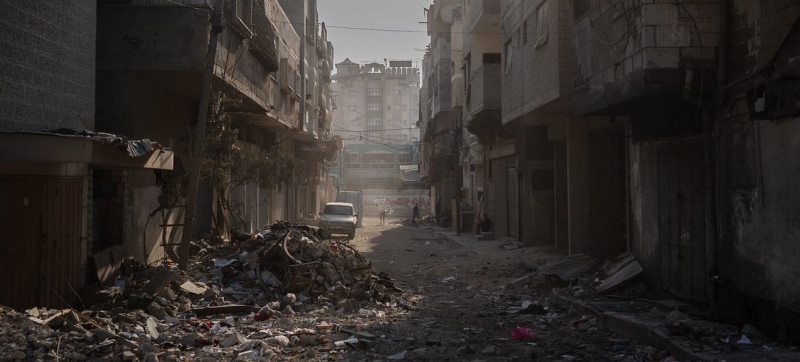
Much of Gaza City is uninhabitable. The UN Security Council adopted a US-proposed resolution on the creation of the International Stabilization Force in Gaza Peace and Security
The UN Security Council on Monday approved a draft resolution submitted by the United States that would create an International Stabilization Force (ISS) in the Gaza Strip. Thirteen countries voted in favor, Russia and China abstained.
The document builds on the Comprehensive Plan previously proposed by United States President Donald Trump. It aims to restore security, ensure humanitarian access and launch a long-term process of reconstruction and institutional reform of the enclave after two years of devastating conflict between Israel and Hamas.
The voting results mean the MSU will have a formal international legal basis for deployment. This is considered a key requirement for states to commit personnel and funding. We are not talking about a UN mission: the project involves a multinational formation outside the peacekeeping operations system.
Russia previously proposed its own version of the resolution, which instructs the Secretary General to develop proposals for a possible stabilization mission. The Russian project was not put to vote.
American draft resolution
The US draft provides for the creation of an International Stabilization Force (ISS), which will work in cooperation with Israel and Egypt and will receive an initial two-year mandate. Key missions of the MCC include providing security along Gaza’s borders, protecting civilians, facilitating the delivery of humanitarian aid, supporting the training and deployment of a renewed Palestinian police force, and overseeing the eventual disarmament of Hamas and other armed groups.
The text of the US proposal also specifies that Israel will completely withdraw its forces once the Force has established sustainable security control and operational manageability throughout the sector.
To coordinate security, humanitarian response and reconstruction, it is proposed to create a transitional mechanism – the Peace Council. The Comprehensive Plan outlines the path to Palestinian self-government and, eventually, statehood, linked to governance reforms and the implementation of key recovery milestones.
Why it matters
The document can be a decisive step from the active phase of conflict to a transition period of stabilization, reconstruction and governance reform in Gaze.
The vote also tested the Security Council’s ability to agree on the framework of a post-war settlement, while the regional situation remains extremely tense. According to diplomatic sources, Washington previously warned Security Council members that without an agreed solution, there was a risk of renewed violence and disruption of the fragile ceasefire.
Discussions in the Council covered the command structure, the command mechanism, the sequencing of security tasks and the role of the Palestinian Authority. Some Council members expressed concern about the amount of external oversight and the lack of clarity about the ultimate political model for governing Gaza.
The Way Forward
What will matter next is which states are willing to contribute troops and equipment to the MSF, and on what terms, and whether Israel agrees to the proposed withdrawal sequence and new structure control.
